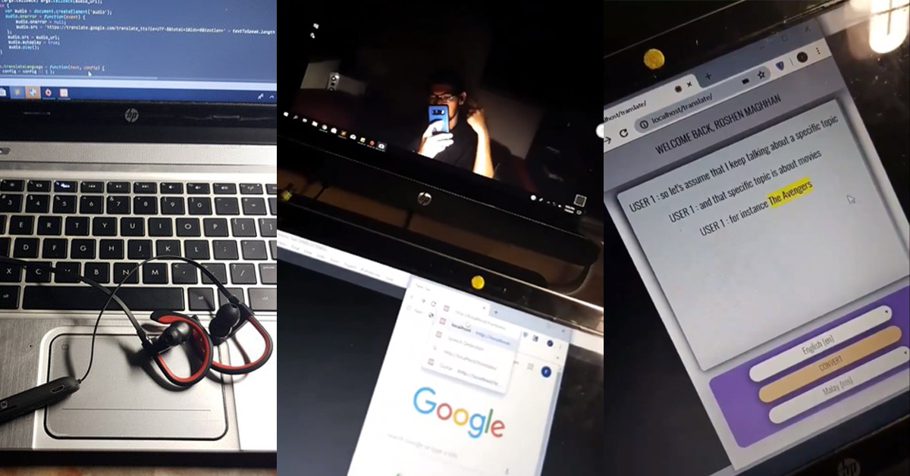You’re at a work meeting when all of a sudden your Chinese colleagues begin conversing in Mandarin.
You would either do three of these things:
- Pretend like you understand them.
- Whip out your phone and “disappear”.
- Write an essay on Facebook about what had just happened.
- Remind them to speak in English.
For Roshen Maghan, he did the latter but his colleagues are the forgetful types so they often switched to Mandarin when they spoke.
Nope, they didn’t do it on purpose, according to Roshen. Maybe they’re just… forgetful.
Anyway, Roshen contemplated on purchasing Google Pixel Buds. But the price of US$195 would burn a hole in the young programmer’s wallet.
He did the unthinkable. Roshen began figuring out a way to build his own language translator.
His first step was to understand the key components of Google Pixel Buds. This is easy because all details of the device is listed on the US Federal Communications Commission (FCC) website.
Next, he purchased the API key from the developer’s website.
Now, Roshen could have trained the AI to learn translations but it’s a tedious lengthy process.
In fact, Google Translate’s API is easier, faster and cheaper.
The API is crucial because it’ll serve as a bridge connecting two software applications to communicate with one another.
When he was done setting up the API, Roshen began testing out the earphones to see if the device worked properly.
All in all, it only cost him US$0.13 to build a language translator!
However, just like any brilliant innovator, Roshen wasn’t celebrating. He wanted to do more.
He began mulling on including a voice differentiation software capable of translating every language so that deaf people could read the translated text as conversations are happening live before them.
After he’s done including a transcript feature – which he developed the algorithm all by himself – the innovator doesn’t stop here.
He takes his device to the next level: It is now capable of recognising keywords or topics, as Roshen calls it.
When users click on the highlighted topic, his programme will provide a brief summary of the conversation surrounding the topic.
Hot damn! Not only did Roshen solve a problem for himself, he also did the same for people with hearing issues.
Nicely done, man!
Hell yeah!

